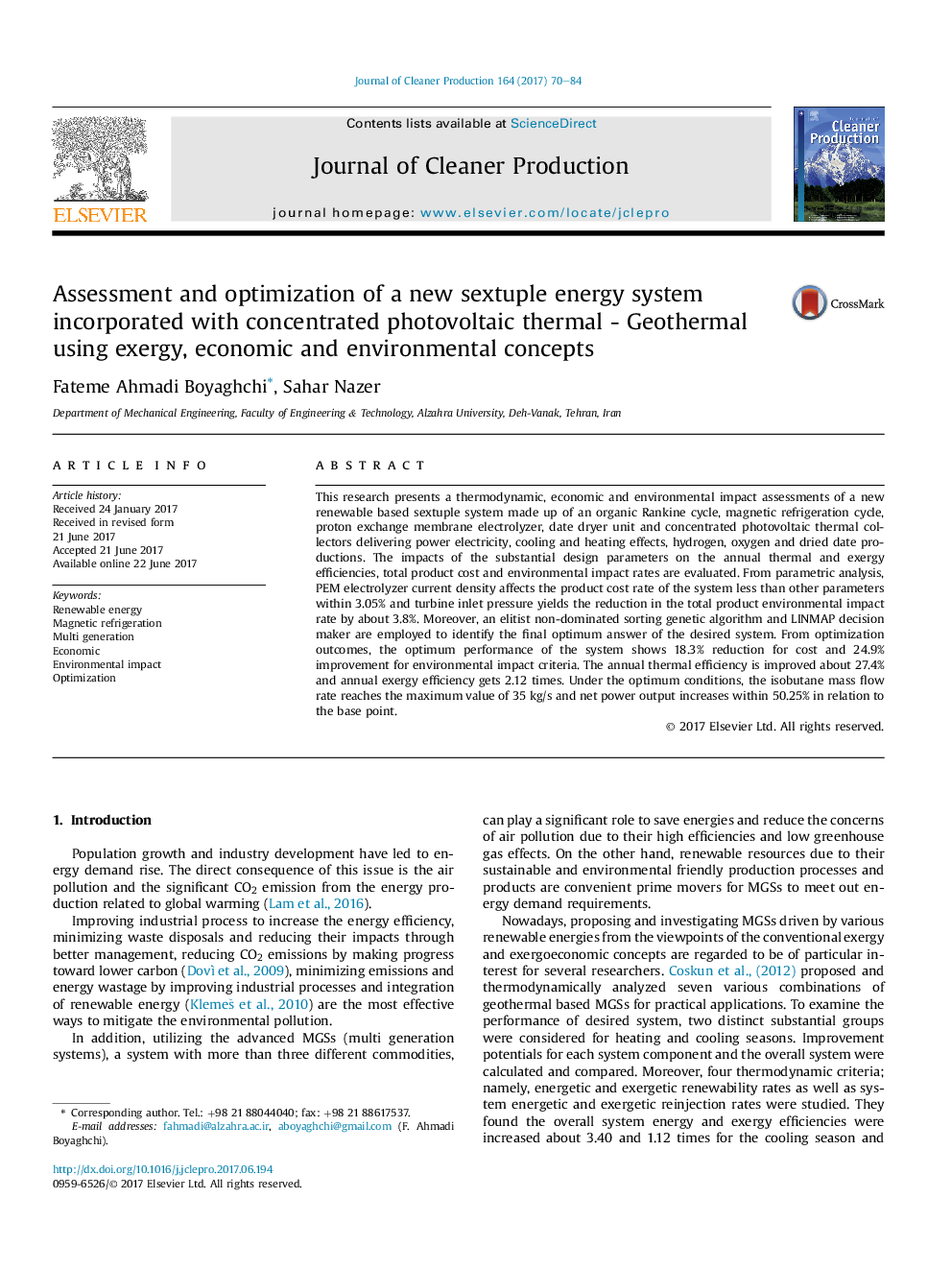ترجمه فارسی عنوان مقاله
ارزیابی و بهینه سازی یک سیستم انرژی چند بعدی با گشتاور فتوولتائیک متمرکز - ژئوترمال با استفاده از اگزرژی، مفاهیم اقتصادی و محیط زیست
عنوان انگلیسی
Assessment and optimization of a new sextuple energy system incorporated with concentrated photovoltaic thermal - Geothermal using exergy, economic and environmental concepts
| کد مقاله | سال انتشار | تعداد صفحات مقاله انگلیسی |
|---|---|---|
| 145976 | 2017 | 15 صفحه PDF |
منبع

Publisher : Elsevier - Science Direct (الزویر - ساینس دایرکت)
Journal : Journal of Cleaner Production, Volume 164, 15 October 2017, Pages 70-84
ترجمه کلمات کلیدی
انرژی تجدید پذیر، تبرید مغناطیسی، چند نسل، اقتصادی، اثرات زیست محیطی، بهینه سازی،
کلمات کلیدی انگلیسی
Renewable energy; Magnetic refrigeration; Multi generation; Economic; Environmental impact; Optimization;

